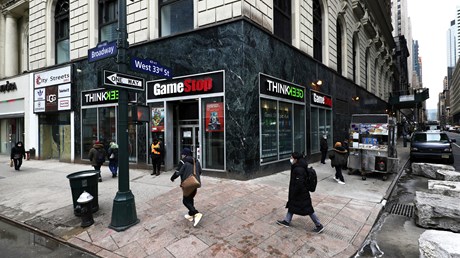Jesus’ economic justice doesn’t mean beating the rich at their own game.

Everybody loves a David and Goliath story. In recent days, millions of aspiring Davids took on one of society’s least favorite Goliaths: Wall Street.
It all started with a Reddit page called WallStreetBets. Many of the 3 million amateur investors involved in the chat room decided to come together to coordinate the purchase of stocks in a handful of companies. By doing so, they generated a massive increase in the value of those companies’ stock. GameStop’s market value, for instance, went from $2 billion to $24 billion in just a few days. While this created an enormous profit margin for individual investors, it also nearly bankrupted a hedge fund that had bet against GameStop by short selling their shares.
By all accounts, many folks involved celebrated both outcomes. “You stand for everything that I hated during [the financial crisis],” one user wrote in an open letter to the hedge funds. “You are a firm who makes money off of exploiting a company and manipulating markets and media to your advantage.” One evangelical pastor even drew on Jesus’ parable about the rich fool (Luke 12:13–21) who used his profits to build a bigger barn to describe what was happening. “Since 2008, it feels like Wall Street has had an overabundant harvest, financed by public money, and rather than share the billions with the less fortunate, they’ve built bigger and bigger barns for themselves.”
I certainly see what he means, especially when we consider the likely economic realities behind the parable. When the rich man tears down his barns to build bigger ones, he probably isn’t creating an enormous rainy-day savings fund. He’s more likely opening the first-century ...
from Christianity Today Magazine
via


.gif)

.gif)
.gif)
